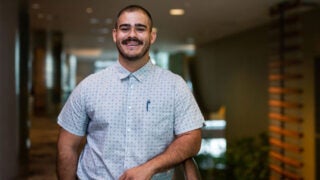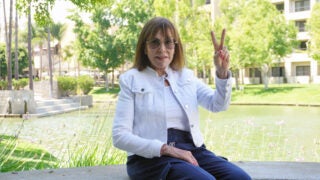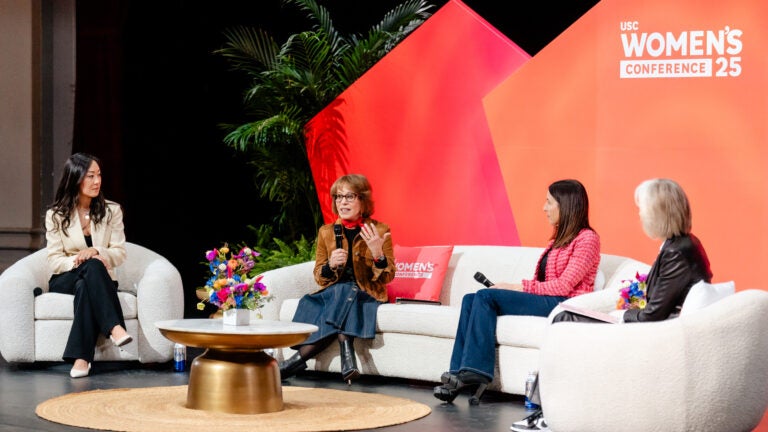
USC Trustee Jaime L. Lee, CEO of Jamison Realty; USC President Carol Folt; Trojan Janet Evans, chief athlete officer of LA28; and USC Annenberg Dean Willow Bay (from left) sit during a discussion at the USC Women’s Conference. (Photo/Laura Burvill)
Visionary leadership celebrated at USC Women’s Conference
At USC’s 18th annual Women’s Conference, USC President Carol Folt discusses leadership lessons — and the Olympics.
The 18th annual USC Women’s Conference on Friday brought more than 800 Trojan alumni, students and others to the University Park Campus for a day of inspiration and leadership by example. In her opening remarks, conference co-chair Priya Rana Kapoor set a rousing tone.
“It’s fantastic to take part in a program that gives women the tools to realize their potential and lead fulfilling lives both professionally and personally — because that’s what it means to be unstoppable,” said Kapoor, a consultant, author and USC alumna with a bachelor’s degree from the USC School of Dramatic Arts and a master’s degree from the USC Rossier School of Education.
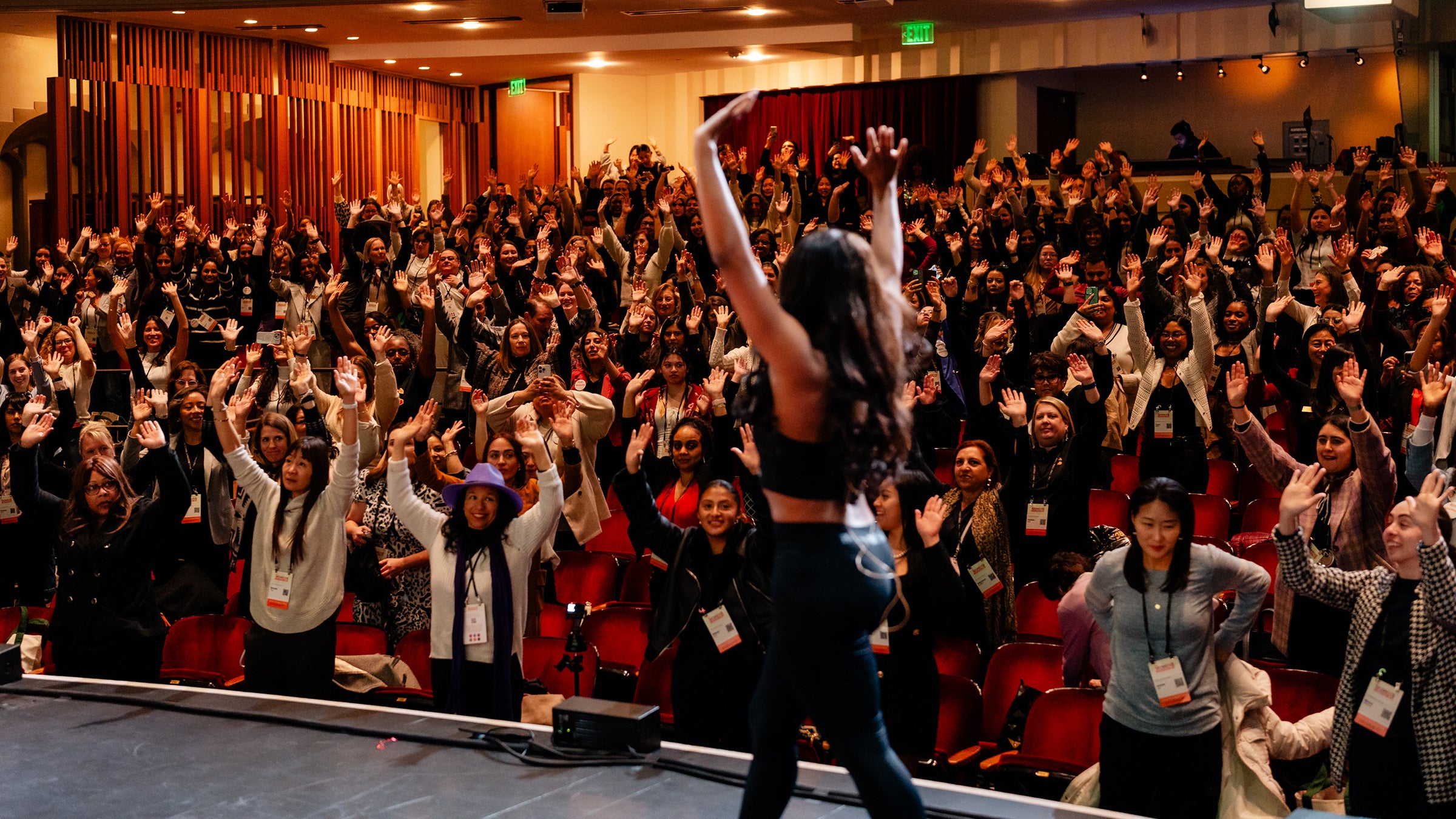
In addition to the main programming inside Bovard Auditorium on leadership, health, artificial intelligence and the 2028 Olympic and Paralympic Games in Los Angeles, the conference — organized by the USC Alumni Association — featured breakout sessions at numerous venues around campus on such topics as impostor syndrome, financial empowerment, self-care, building connections and navigating the field of technology.
During the opening conversation titled “Celebrating Visionary Leadership” with USC President Carol Folt and USC Associate Senior Vice President for Alumni Relations Erika Jordan, Folt said that her thoughts on maintaining authenticity as a leader have evolved over her 24 years in university leadership.
Folt said “being in the moment and being yourself” have become invaluable characteristics to hold on to. She referred back to her time as a faculty member leading a lab as an important learning opportunity she still relies on.
“When you start, you are just yourself, and you’re trying to suddenly be the person who has to make decisions,” Folt said. “But that feeling that you’re you is so important.”
Keys to effective leadership
Folt pointed to valuing constructive criticism, viewing challenges as opportunities, and knowing the importance of optimism and team support as keys to effective leadership. She also discussed the challenge of balancing tradition with innovation and the importance of collaboration.

Folt — the first woman to permanently serve as president of USC — said she has come to realize that it’s OK to think about the impact of her work and about her legacy despite “women of my generation” being conditioned not to. She noted how earlier in the week in a pair of State of the University speeches, she had the opportunity to discuss the highlights of her six-year presidency at USC.
“Something we all learn is that it is OK to feel proud about what you’ve done,” said Folt, who will step down as president of USC on July 1. She previously served as chancellor of the University of North Carolina at Chapel Hill and provost and interim president of Dartmouth College.
“It goes back to, I believe in our mission,” Folt said of her years at USC. “We’re about education; we’re about opportunity; we’re about serving the public good. Universities have always been places where the ideas play out.”
Jordan closed the conversation by paying tribute to Folt, who she said has performed her job “with such compassion, enthusiasm and joy.” She then presented Folt with a bouquet of flowers and said: “I just want to thank you for your leadership, and I’m going to give you your flowers while you’re here.”
Olympic-sized opportunities
After Folt’s conversation with Jordan, a women’s health panel led by Dean Carolyn Meltzer of the Keck School of Medicine of USC brought together leading experts in medicine and wellness to explore the unique health challenges women face across different life stages. Later, there were panel discussions on “Women Leading the Charge on Leveraging AI for Pandemic Prevention” and “Leadership and Legacy at the 2028 Los Angeles Olympics and Paralympics.”
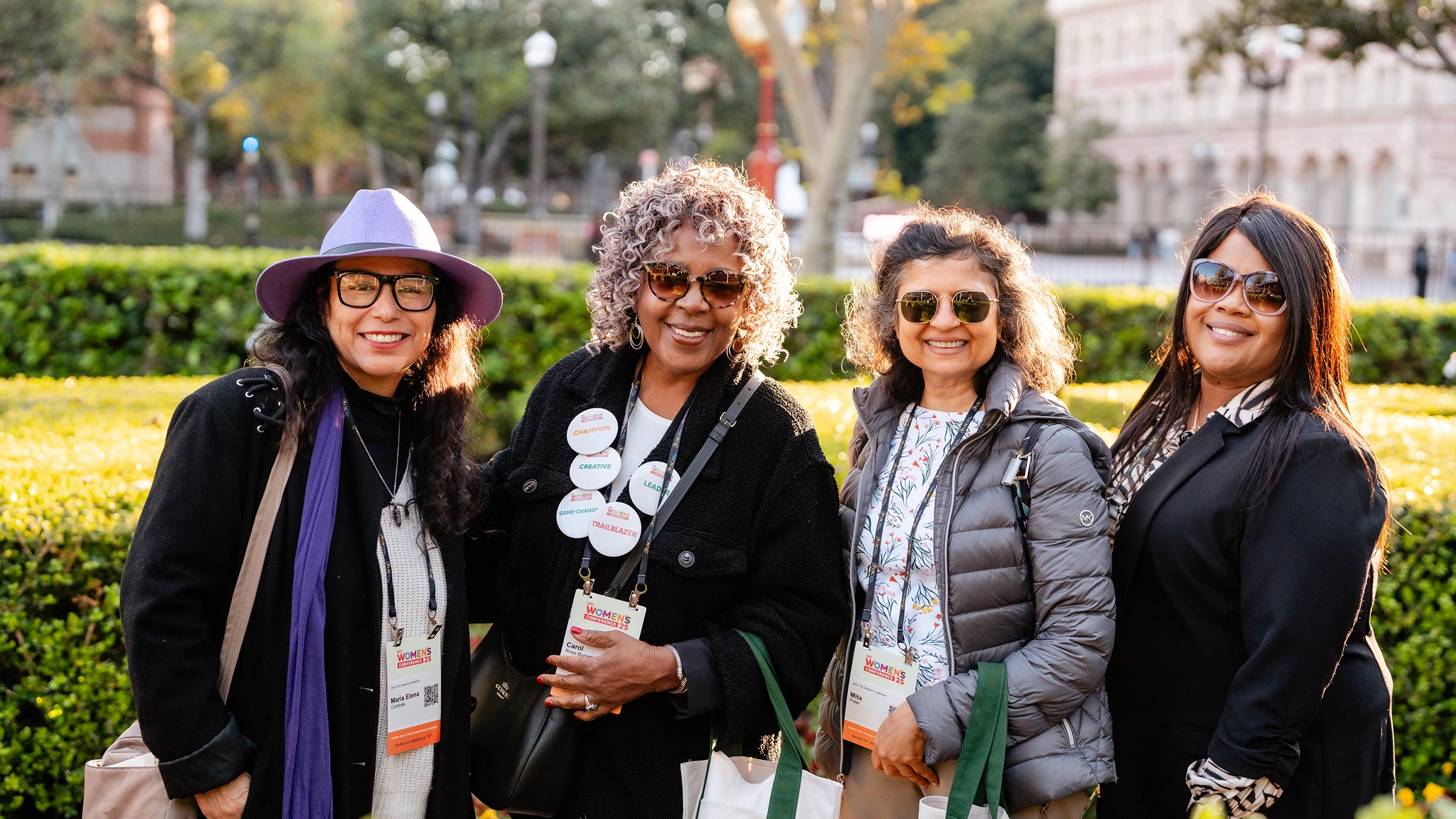
Folt discussed the upcoming Olympics with fellow panelists Janet Evans, a USC alumna who is chief athlete officer for the LA28 Olympic and Paralympic Games and the first American woman to win four individual Olympic gold medals in swimming, and USC Board of Trustees member Jaime L. Lee, who is on the board of the LA28 Olympic and Paralympic Games.
Moderator Willow Bay, dean of the USC Annenberg School for Communication and Journalism, remarked that as L.A. prepares to host the Olympics for the third time, “there is no institution more intertwined with the Olympic Games than USC, with its extraordinary facilities, world-class athletes and well-positioned alumni network.”
Folt, who described the Olympics as a “global unifier,” agreed with Bay and said that the international competition is “an amazing learning experience for people in education.”
“It gives us a chance to really look at that incredible connection between individual accomplishment, global reach, community and education,” she said. “We have a really strong opportunity to talk about the true meaning of individual perseverance and grit.”
Folt pointed out that without U.S. universities and the investment they have traditionally made in college athletics, the United States would not have the Olympic presence that it has. USC has been a leader in this area, producing more Olympians and overall medalists than any other university in the country.
Folt said universities with big athletics programs “know better than anyone else the fullness of the benefits that all those athletes bring to the institution.”
“They come here, they succeed in every area,” she said, noting that student-athletes typically have high graduation rates and grade point averages. “They go off and do amazing things in the world.”


